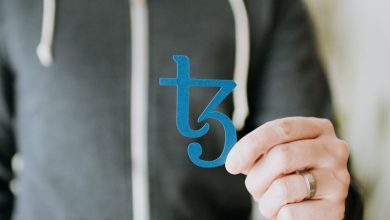The Role of Blockchain in Digital Identity Verification

- The Basics of Blockchain Technology
- Enhancing Security in Digital Identity Verification
- The Potential of Blockchain in Identity Management
- Challenges and Opportunities in Blockchain-based Identity Verification
- Case Studies: Successful Implementation of Blockchain in Identity Verification
- Future Trends in Blockchain Technology for Digital Identity Verification
The Basics of Blockchain Technology
Blockchain technology is the foundation of cryptocurrencies like Bitcoin. It is a decentralized and distributed ledger that records transactions across a network of computers. Each block in the chain contains a list of transactions, and once added, it cannot be altered. This makes it secure and tamper-proof, as any attempts to change the data would be immediately detected by the network.
One of the key features of blockchain technology is its transparency. All transactions are visible to all participants in the network, ensuring accountability and reducing the risk of fraud. Additionally, blockchain technology eliminates the need for intermediaries in transactions, reducing costs and increasing efficiency.
Another important aspect of blockchain technology is its immutability. Once a block is added to the chain, it is permanent and cannot be altered. This feature ensures the integrity of the data stored on the blockchain, making it ideal for applications where data security and authenticity are paramount.
Overall, blockchain technology offers a secure, transparent, and efficient way to verify digital identities. It has the potential to revolutionize the way we handle identity verification online, providing a more secure and reliable alternative to traditional methods.
Enhancing Security in Digital Identity Verification
Enhancing security in digital identity verification is crucial in today’s fast-paced digital world. Blockchain technology plays a key role in improving the security of identity verification processes. By leveraging blockchain, organizations can ensure that sensitive personal information is securely stored and accessed only by authorized parties.
One of the main advantages of using blockchain for digital identity verification is its immutability. Once data is recorded on a blockchain, it cannot be altered or tampered with, providing a high level of security and trust in the verification process. This eliminates the risk of fraudulent activities and unauthorized access to personal information.
Furthermore, blockchain technology enables decentralized identity verification, eliminating the need for a central authority to verify identities. This not only reduces the risk of data breaches but also increases efficiency and transparency in the verification process. Individuals have more control over their personal information and can choose who has access to it.
In addition, blockchain enhances security by using encryption techniques to protect data stored on the blockchain. This ensures that personal information is kept confidential and secure, reducing the risk of identity theft and fraud. By incorporating blockchain into digital identity verification processes, organizations can significantly improve security and trust in their systems.
The Potential of Blockchain in Identity Management
Blockchain technology has the potential to revolutionize identity management by providing a secure and decentralized solution for verifying digital identities. By leveraging blockchain’s immutable and transparent nature, individuals can have more control over their personal information, reducing the risk of identity theft and fraud.
One key advantage of using blockchain for identity management is the elimination of centralized authorities that store sensitive data. Instead, information is stored in a distributed ledger, making it more difficult for hackers to compromise a single point of failure. This decentralized approach enhances security and privacy, giving users peace of mind knowing their data is better protected.
Moreover, blockchain allows for efficient and seamless identity verification processes. Through smart contracts, individuals can securely share their verified credentials with third parties, eliminating the need for repetitive verification processes. This not only saves time but also reduces costs associated with identity verification.
Additionally, blockchain technology enables greater interoperability between different identity systems. With blockchain, users can have a universal digital identity that can be easily verified across various platforms and services. This seamless integration streamlines processes and enhances user experience, ultimately leading to greater adoption of digital identity verification solutions.
In conclusion, the potential of blockchain in identity management is vast. By leveraging its security, transparency, and efficiency, blockchain can play a significant role in transforming how digital identities are verified and managed. As more industries and organizations recognize the benefits of blockchain technology, we can expect to see widespread adoption of blockchain-based identity solutions in the near future.
Challenges and Opportunities in Blockchain-based Identity Verification
One of the challenges in implementing blockchain-based identity verification is the issue of scalability. As the number of transactions on the blockchain increases, so does the amount of data that needs to be processed. This can lead to slower transaction times and higher fees, making it less efficient for verifying identities on a large scale.
Another challenge is the issue of privacy. While blockchain technology offers a high level of security, it also presents a potential risk to user privacy. Since all transactions are recorded on a public ledger, there is a concern that personal information could be exposed to malicious actors.
Despite these challenges, there are also opportunities for blockchain-based identity verification. One of the main advantages is the increased security it offers. By using cryptographic algorithms and decentralized networks, blockchain technology can help prevent identity theft and fraud.
Additionally, blockchain technology can provide a more seamless and user-friendly experience for identity verification. Users can have greater control over their personal information and how it is shared, leading to a more transparent and trustworthy system.
Case Studies: Successful Implementation of Blockchain in Identity Verification
Several case studies have demonstrated the successful implementation of blockchain in identity verification processes. These real-world examples showcase the practical applications of blockchain technology in enhancing security and efficiency in digital identity management.
- One notable case study involves a financial institution that adopted blockchain for customer identity verification. By securely storing customer data on a decentralized ledger, the institution was able to streamline its onboarding process and reduce the risk of identity theft.
- Another example is a government agency that utilized blockchain to enhance the security of citizen identities. Through the use of cryptographic keys and digital signatures, the agency was able to ensure the integrity of sensitive information while also improving data access control.
- In the healthcare sector, a hospital successfully implemented blockchain for patient identity verification. By creating a tamper-proof record of patient identities, the hospital improved data accuracy and streamlined the sharing of medical information among healthcare providers.
These case studies highlight the diverse applications of blockchain in identity verification across various industries. By leveraging blockchain technology, organizations can enhance data security, improve operational efficiency, and build trust with their customers and stakeholders.
Future Trends in Blockchain Technology for Digital Identity Verification
Blockchain technology is continuously evolving, and there are several future trends that are expected to shape the landscape of digital identity verification. One of the key trends is the implementation of decentralized identifiers (DIDs) to provide users with self-sovereign identity. This approach allows individuals to have control over their own personal information, reducing the risk of data breaches and identity theft.
Another trend to watch out for is the use of zero-knowledge proofs, which enable users to prove certain information about themselves without revealing the actual data. This enhances privacy and security in digital identity verification processes. Additionally, the integration of artificial intelligence (AI) and machine learning algorithms into blockchain systems can further improve the accuracy and efficiency of identity verification processes.
Furthermore, the adoption of interoperable blockchain networks will enable seamless sharing of verified identity information across different platforms and services. This will streamline user experiences and reduce the need for repetitive identity verification checks. Moreover, the development of biometric authentication methods, such as facial recognition and fingerprint scanning, will add an extra layer of security to digital identity verification processes.
In conclusion, the future of blockchain technology for digital identity verification looks promising, with advancements in self-sovereign identity, zero-knowledge proofs, AI integration, interoperable networks, and biometric authentication. These trends will not only enhance security and privacy but also improve user experiences in the digital world.



